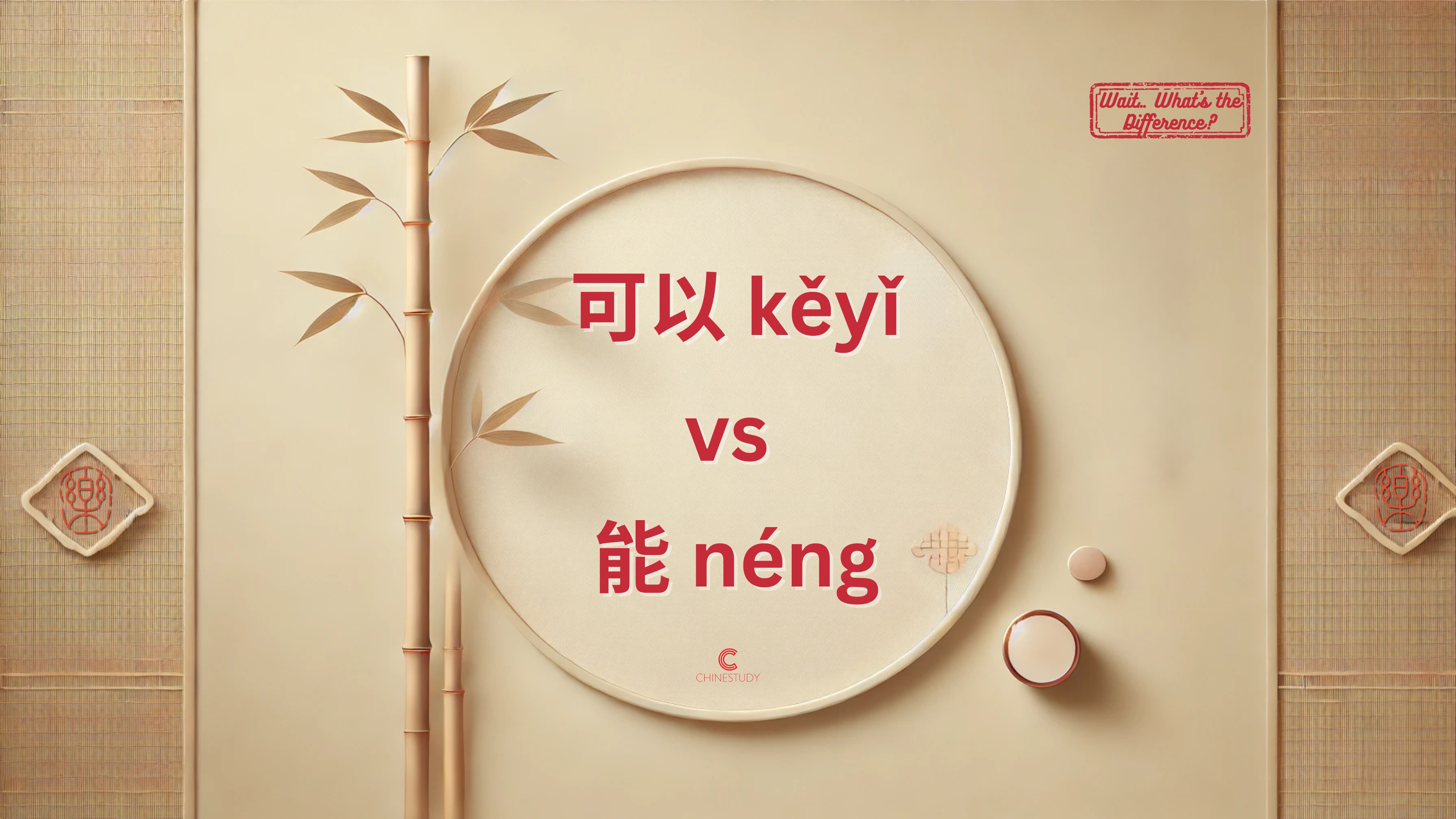
🧐 可以 kěyǐ vs 能 néng – What’s the Difference?
Confused about when to use 可以 and when to use 能? This guide makes it simple! Learn how to express permission and ability with real-life examples and fun practice.
Continue reading
🧐 有点儿 yǒudiǎnr vs 一点儿 yìdiǎnr – What’s the Difference?
Learn the difference between 有点儿 and 一点儿 in Chinese. This clear and fun guide explains when to use each word with easy examples and common mistakes to avoid.
Continue reading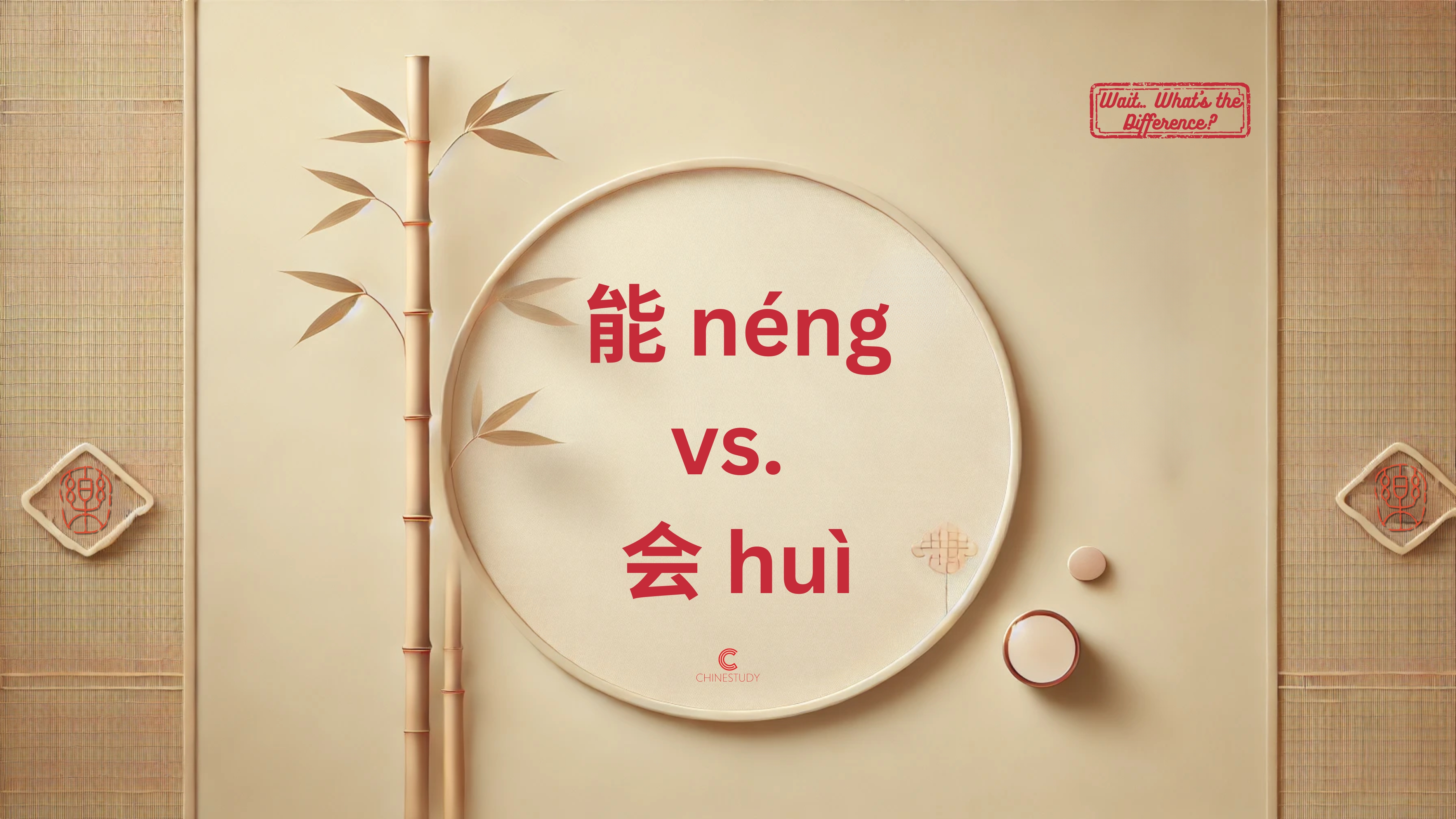
🧐 能 néng vs. 会 huì – What’s the Difference?
What’s the difference between 能 (néng) and 会 (huì)? Both mean "can," but they’re used differently! This blog explains how to use them with fun examples and easy tips.
Continue reading
🔍 帮 bāng vs 帮忙 bāngmáng – What’s the Difference?
Learn how to use 帮 and 帮忙 correctly in Chinese. This short guide explains the difference with clear examples and helpful tips for learners.
Continue reading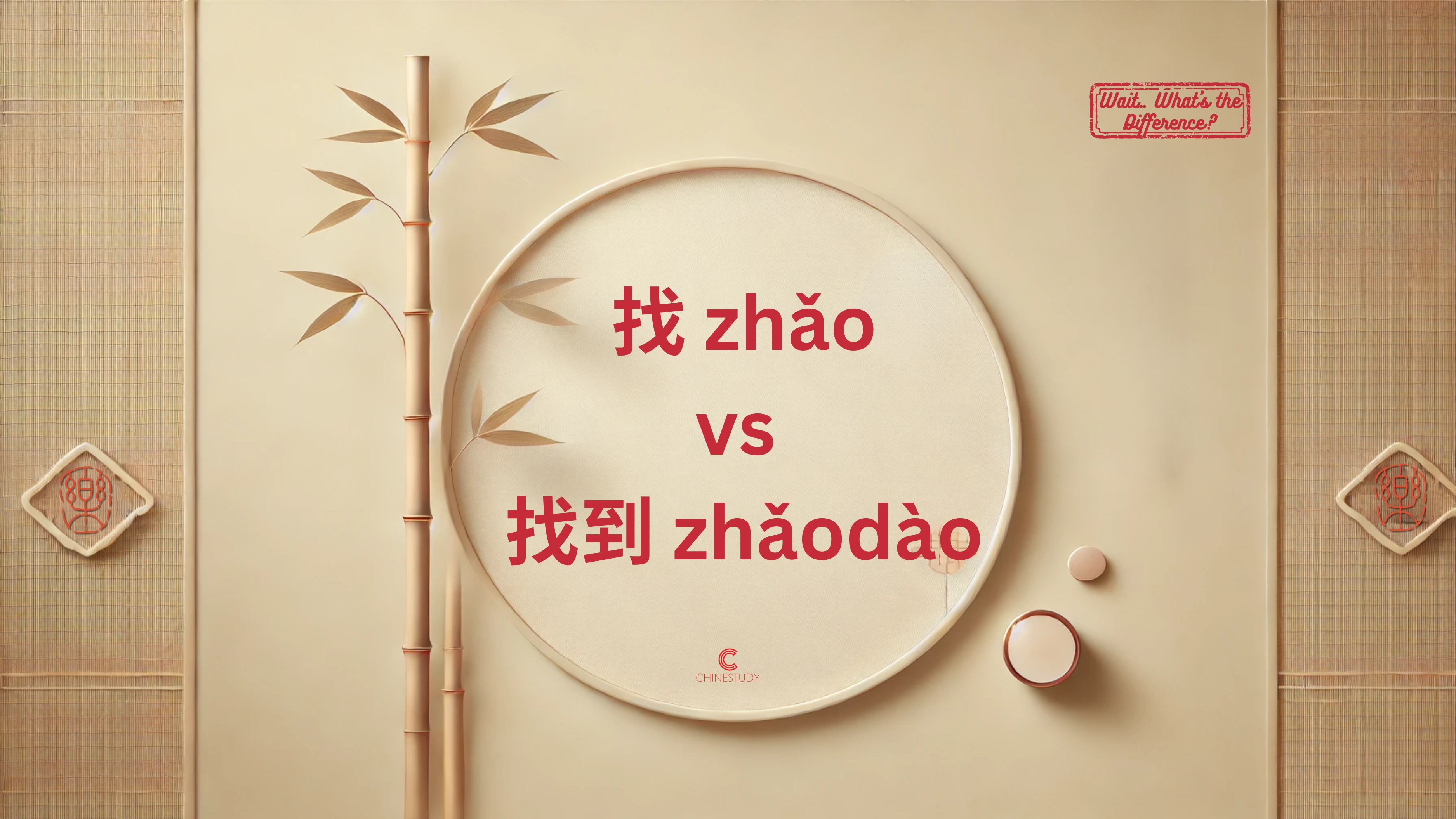
🔍 找 zhǎo vs 找到 zhǎodào – What’s the Difference?
What’s the difference between 找 (zhǎo) and 找到 (zhǎodào)? If you’re confused about when to use each, this blog will make it crystal clear!
Continue reading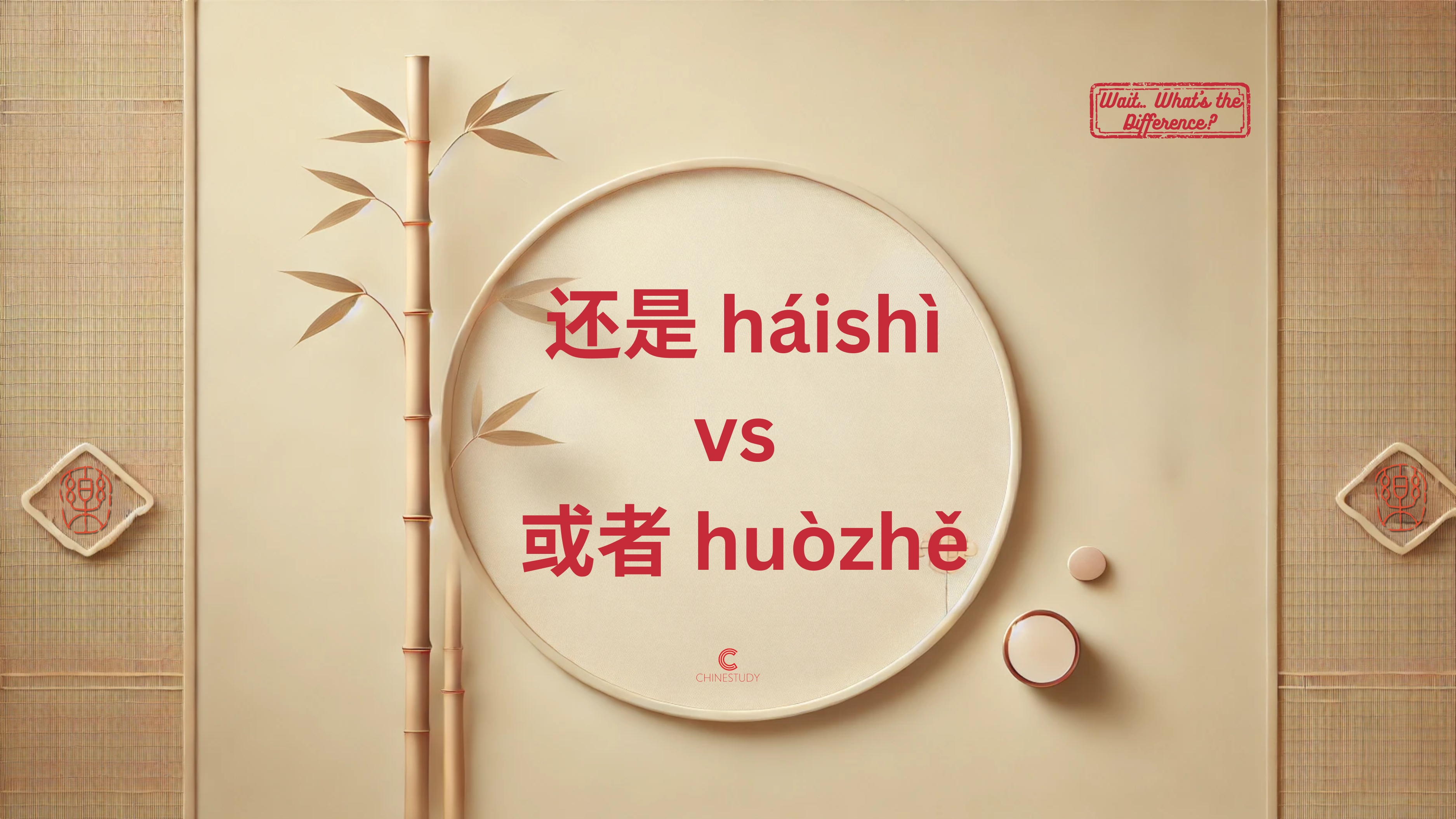
🔍 还是 háishì vs 或者 huòzhě – What’s the Difference?
Learn when to use 还是 (háishì) and when to use 或者 (huòzhě) in Chinese. This post explains the difference with clear examples, common mistakes, and fun practice. Perfect for beginner learners!
Continue reading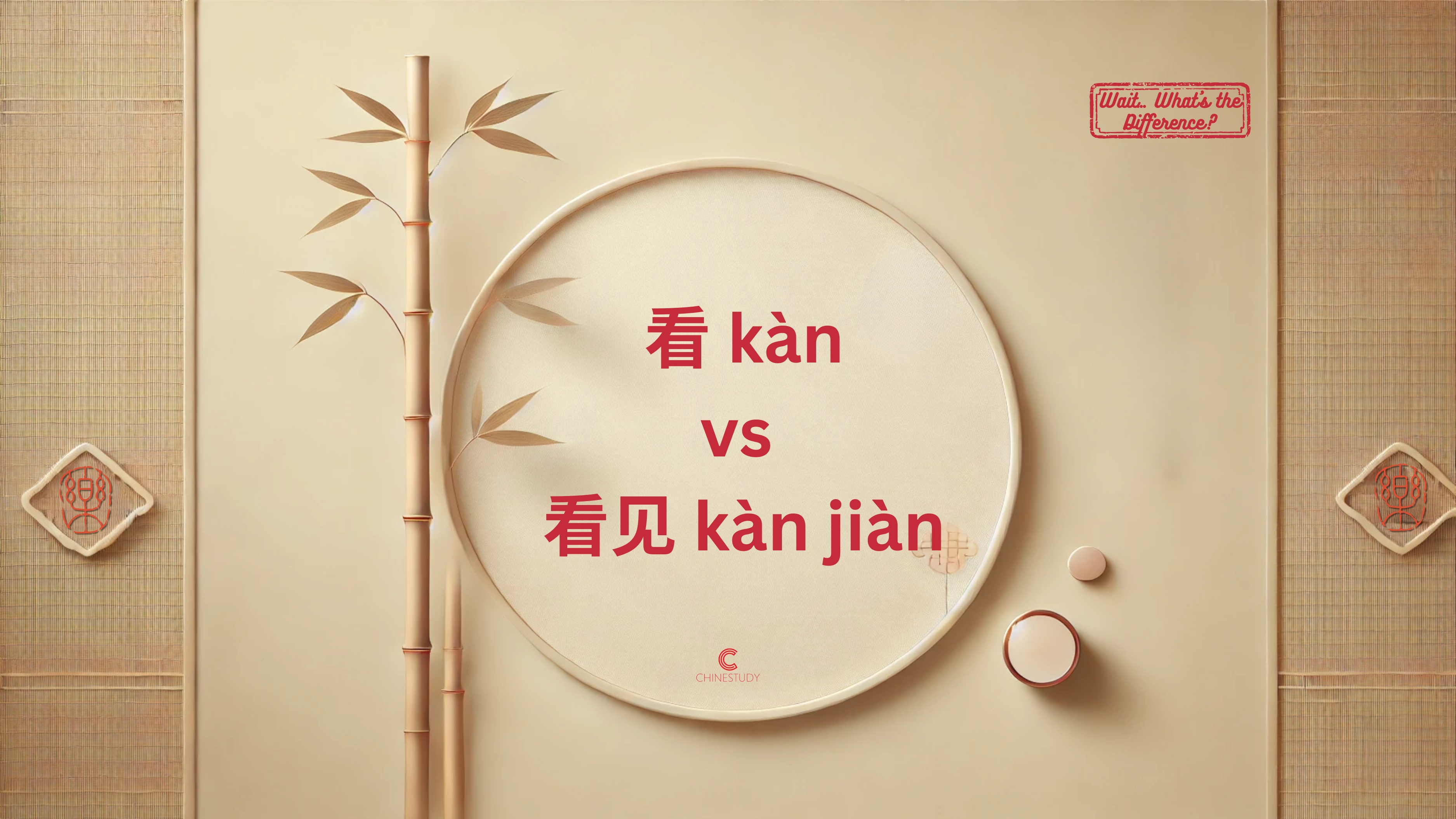
🧐 看 kàn vs. 看见 kànjiàn – What’s the Difference?
Confused about 看 (kàn) and 看见 (kànjiàn)? 看 is for looking or watching, while 看见 means successfully seeing something. Learn how to use both with simple tips and examples!
Continue reading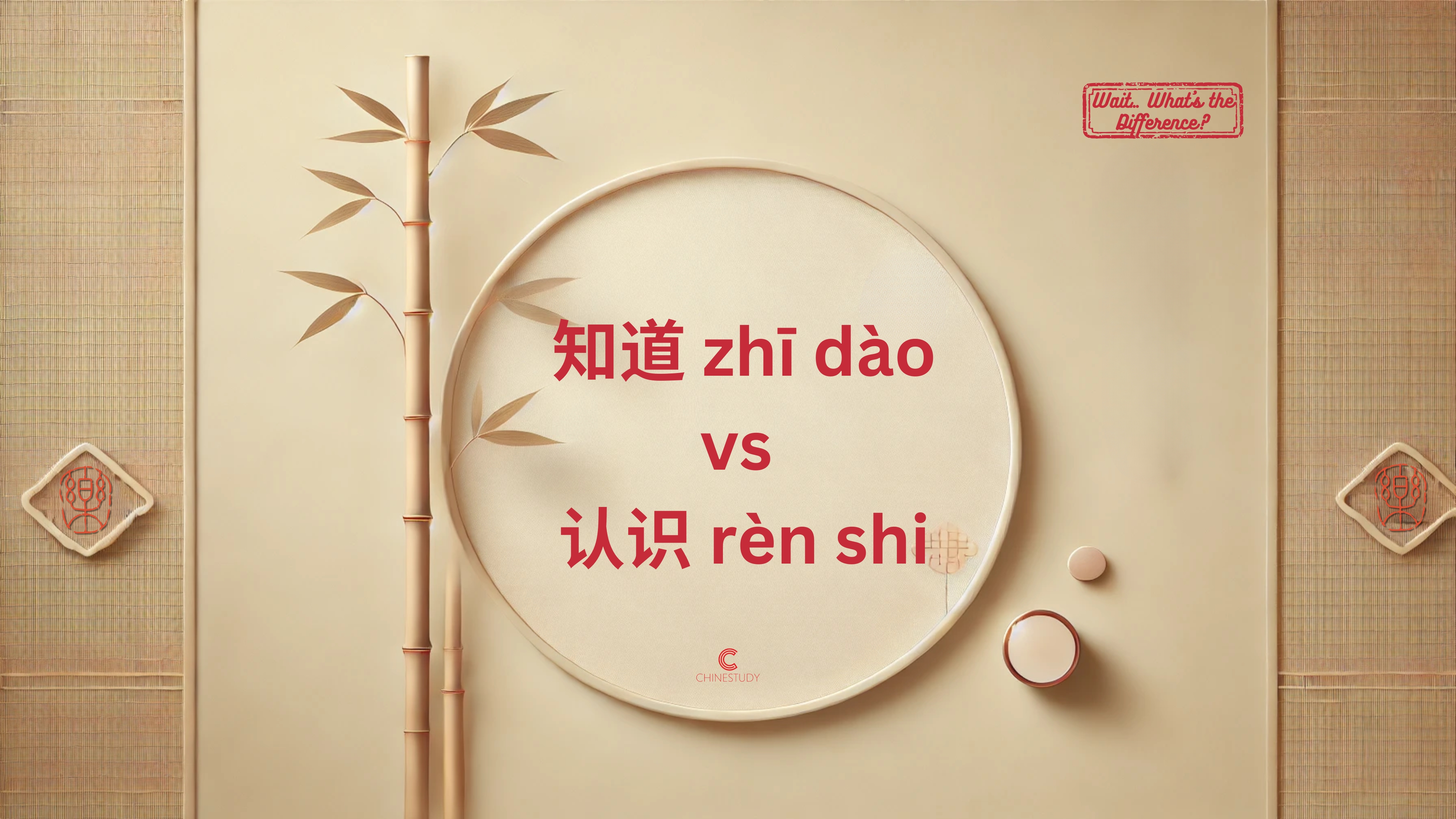
🧐 知道 zhīdào vs. 认识 rènshi – What’s the Difference?
Confused about the difference between 知道 zhīdào and 认识 rènshi? Learn how to use these two Chinese verbs correctly, with clear examples and fun practice!
Continue reading
🧐 几 jǐ vs 多少 duō shǎo – What’s the Difference?
🧐 What’s the difference between 多少 (duō shǎo) and 几 (jǐ)? Learn when to use each with simple examples and one easy tip for everyday Chinese!
Continue reading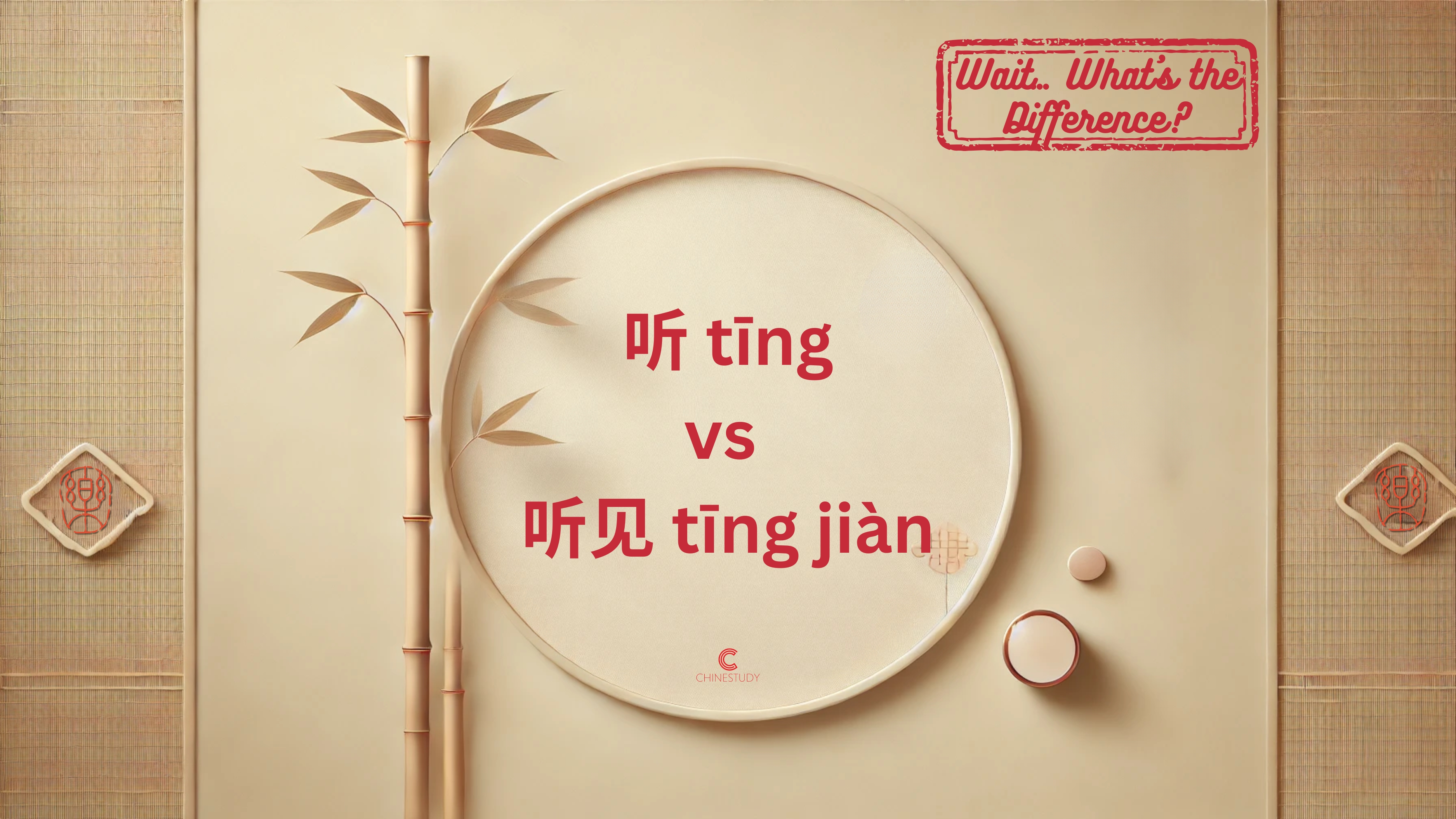
🧐 听 tīng vs 听见 tīng jiàn – What’s the Difference?
🧐 What’s the difference between 听 (tīng) and 听见 (tīng jiàn)? Learn how to use them correctly with simple examples and an easy tip!
Continue reading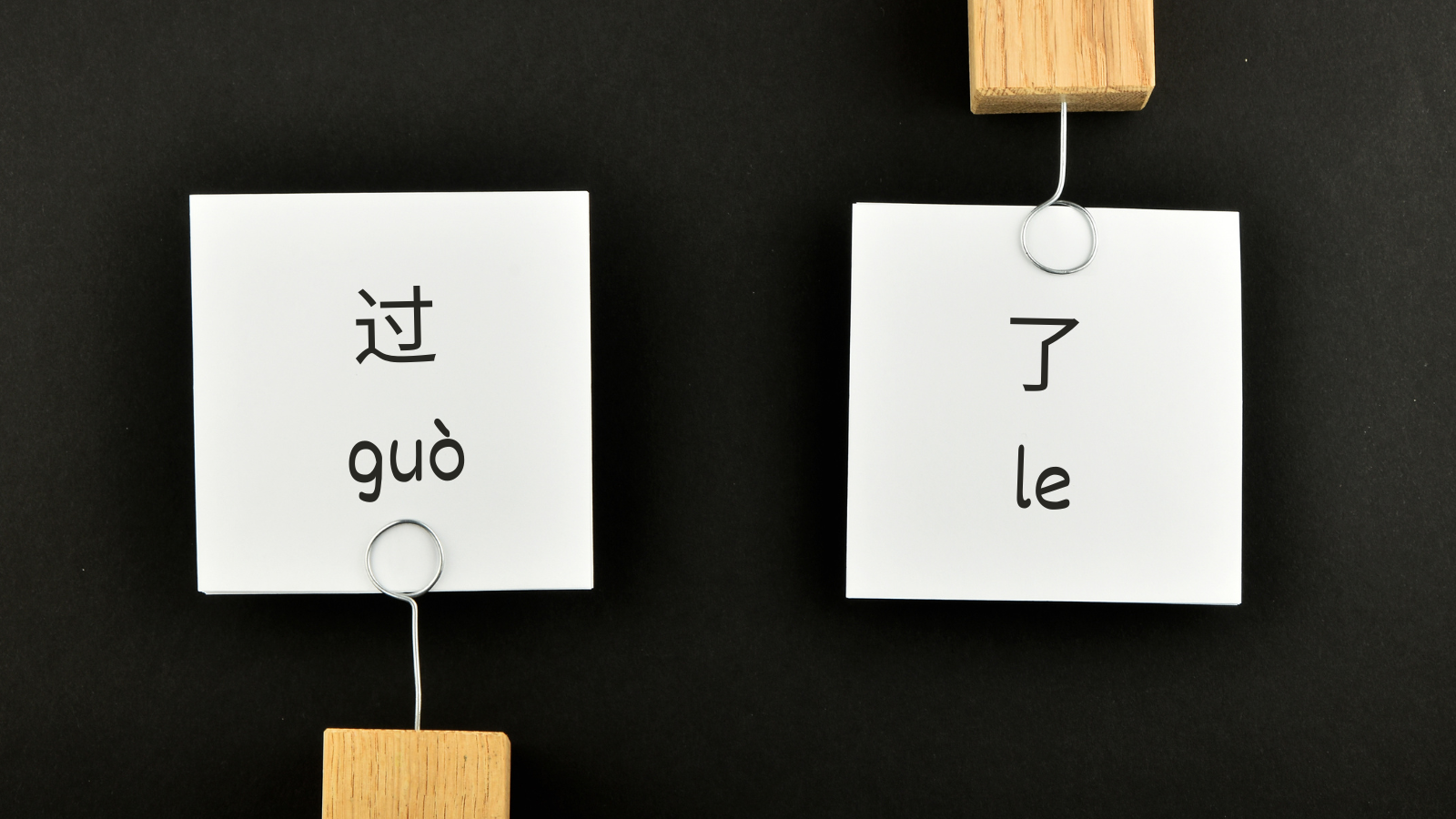
What's the difference? 过 (guò) vs 了 (le)
Did you know that mastering 过 (guò) and 了(le) is a cornerstone in Chinese language proficiency? Let's delve into the art of using these two vital words - why, when and how to use them!
Continue reading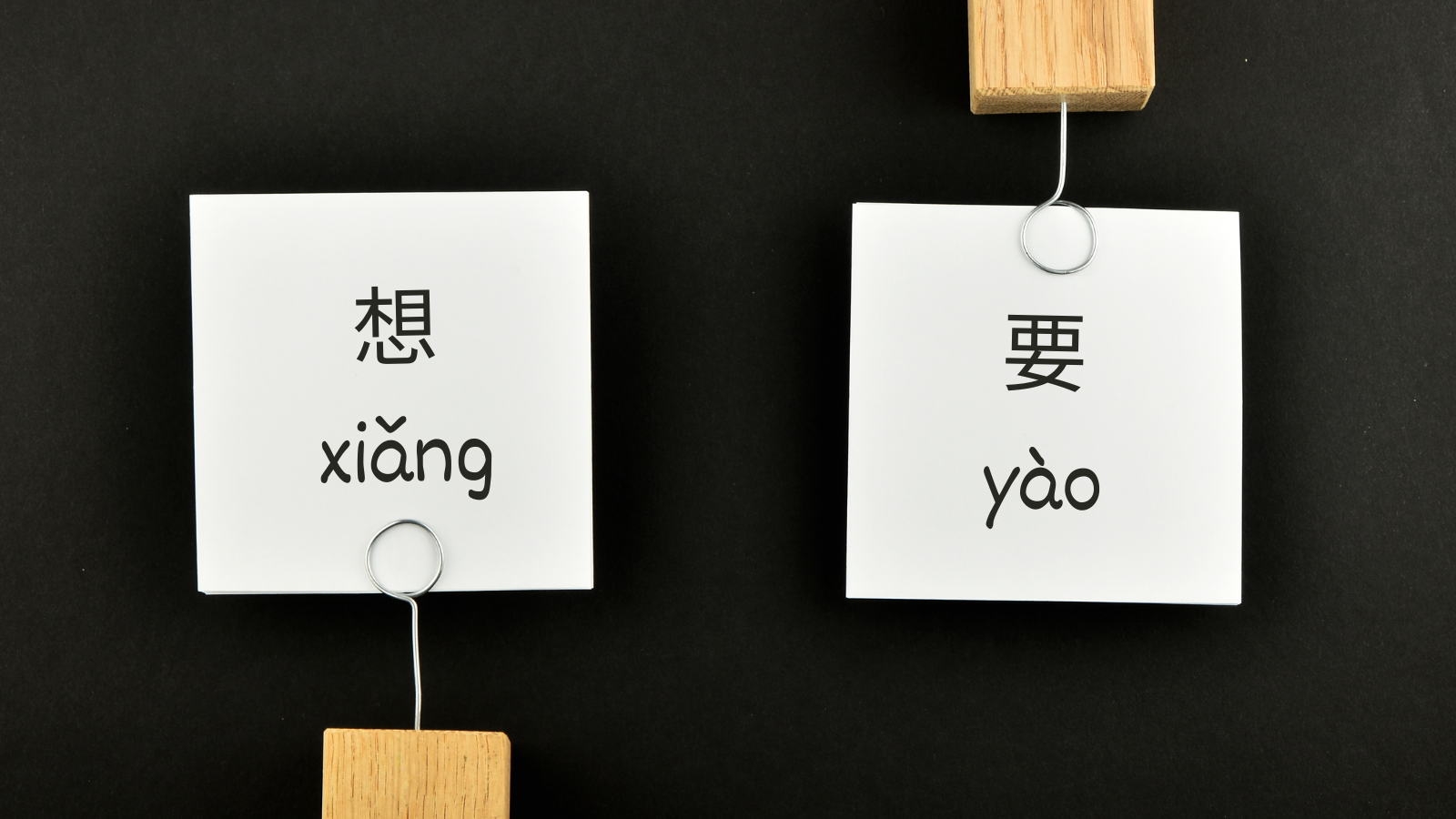
想 (xiǎng) vs 要 (yào) | The Differences Explained
Are you trying to learn the subtle differences between the Chinese words 想 (xiǎng) and 要 (yào)? Learn exactly how they are used with examples so you can understand them better in context.
Continue reading